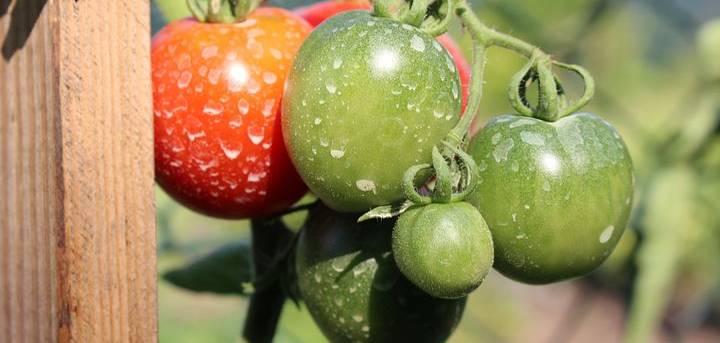|
Pressure from the powerful chemical industry and farming lobbies pushed EU top-level officials to betray their own commitments to deliver several key laws by 2023. The last work programme issued by the College of Commissioners chaired by Ursula von der Leyen ahead of the 2024 European elections leaves a legacy of thwarted ambitions.
“EU officials' hard work in delivering a transformative Green Deal legislative roadmap is bogged down by last-minute political decisions coming from top-level Commissioners. This unjustified self-sabotage only responds to political and industry pressure. People are asking for bold policies to speed up the pace of change towards a clean, resilient and toxic-free future. By prioritising profits over people and the environment, the EU risks losing citizens’ trust”, said Patrick ten Brink, the EEB’s Secretary General.
The European Environmental Bureau, as the largest European network of green NGOs, summarises the delays and omissions in the European Commission's 2023 Work Programme undermining its Green Deal and zero pollution ambitions:
Chemicals law
The CWP 2023, adopted by the College of Commissioners today, is set to delay the start of the reform of REACH, the centrepiece-piece of Europe’s regulation of chemicals, by a year to the last quarter of 2023. With European Parliament elections in 2024, the delay is effectively ‘game over’ for the much-needed improvements of chemicals regulation under this Commission. No complex reform has ever been completed in such a short period of time.
“This is a screeching U-turn away from excellent plans for greater environmental and health protections and towards the interests of industrial polluters. They are doing this in the name of helping firms through the energy crisis, but that is just a smokescreen. The sector made excellent profits in the last decade and has generous reserves, while on the other hand, the reforms will take many years to come into force with no short-term impacts on them. This is a major blow to the EU Green Deal”, explains Tatiana Santos, the EEB’s Head of Chemicals Policy.
Toxic pollution regulation
The status is also unclear for other important files to protect human health and the environment. These include the Mercury and the Cosmetics Regulations, the revision of the EU rules to improve access to and availability of chemical safety data, as well as the review of the Restrictions of Hazardous Substances in Electrical and Electronic Equipment (RoHS) Directive. Another eagerly anticipated initiative is the EU’s Integrated Nutrient Management Action Plan to tackle nutrient pollution and inefficiencies in the nutrient cycle thus improving food security, protecting human health and preserving the ecosystems.
While all of those were foreseen for the last quarter of 2022 (except for chemical safety data expected in the first quarter of 2023) and announced as delayed, they now do not appear on the Commission’s to-do list for next year at all. Instead, the Commission is expected to publish a “Fertilisers Strategy” in November, which has been developed without adequate public consultation and is feared to narrowly cater to the fertiliser and intensive agriculture industries’ interests.
Forest strategy
Another worrying omission from the Working Programme is the forgotten legal proposal to step up forest monitoring, reporting and data collection in the EU announced in the EU’s Forest Strategy.
“Our forests need help, and a new EU law was expected to do that job. Harmonised EU data collection, combined with strategic planning at Members States' level, will provide a comprehensive picture of the state of our forests and envisage their future. This is paramount to making sure that forests can deliver on their multiple functions for climate, biodiversity and economy” said Sergiy Moroz, the EEB’s Policy Manager for Biodiversity and Water
Right to repair
Further, it is disappointing to see no mention of the initiative on ‘Sustainable Consumption of Goods – promoting repair and reuse’ in the 2023 Work Programme, following the proposal’s rejection by the Regulatory Scrutiny Board.
“With the stalling of this legislation, consumers, currently faced with a cost-of-living crisis, will continue to be forced to replace rather than repair their devices – unnecessarily driving up expenditure alongside hazardous e-waste. Repair is a key component of the Circular Economy model, and so its omission from the Circular Economy Package in November is a missed opportunity. It should therefore be retabled as early as possible in 2023”, said Orla Butler, the EEB’s Policy Officer for Circular Economy.
Economic governance
The Economic Governance framework review, including Stability and Growth Pact (SGP) albeit fiscal rules reform, has already been delayed but is finally part of this CWP. The European Commission leaves it open whether it will be a legislative or non-legislative process.
“EU fiscal rules are not fit anymore for the challenges we face and need to be aligned with sustainability and wellbeing goals instead of infinite economic growth. A fiscal reform of such importance should follow a democratic and transparent process that includes a formal role for the European Parliament, hence an ordinary legislative procedure”, said Katy Wiese, the EEB’s Policy Officer for Economic Transition.
|







Comments